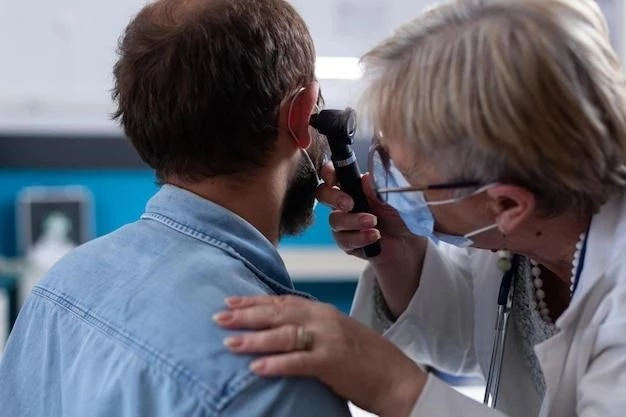Introduction
Morquio syndrome, also known as Mucopolysaccharidosis Type IV (MPS IV), is a rare genetic disorder affecting the body’s ability to break down certain sugar molecules. Learn more about this condition.
Overview of Mucopolysaccharidosis Type IV-B
Mucopolysaccharidosis Type IV-B, also known as Morquio Syndrome, is a rare genetic disorder categorized within the broader group of lysosomal storage diseases. It is distinguished by the body’s inability to break down specific sugar molecules, leading to the accumulation of glycosaminoglycans. This condition is inherited in an autosomal recessive manner and primarily affects skeletal development. Understanding the genetic and metabolic aspects of Morquio Syndrome is essential for diagnosis and management strategies.
Clinical Presentation
Individuals with Mucopolysaccharidosis Type IV-B (Morquio Syndrome) typically experience skeletal abnormalities, short stature, joint laxity, and corneal clouding. Understanding these manifestations is crucial for early detection and appropriate management.
Signs and Symptoms of Morquio Syndrome
Individuals with Mucopolysaccharidosis Type IV-B (Morquio Syndrome) may present with skeletal abnormalities, short stature, joint laxity, corneal clouding, and respiratory issues. Early signs like abnormal gait patterns and delayed development should prompt further evaluation for this rare genetic disorder. Regular monitoring for progressive symptoms is crucial in managing Morquio Syndrome effectively.
Genetics
Understanding the genetic basis of Mucopolysaccharidosis Type IV-B (Morquio Syndrome) is crucial as it is inherited in an autosomal recessive manner. Genetic mutations affecting the beta-galactosidase gene on chromosome 3p22 lead to the manifestation of this rare lysosomal storage disorder. It is essential to comprehend the genetic underpinnings for accurate diagnosis and management of this condition.
Causes of Mucopolysaccharidosis Type IV-B
Mucopolysaccharidosis Type IV-B (Morquio Syndrome) is primarily caused by homozygous or compound heterozygous mutations in the gene encoding beta-galactosidase (GLB1) on chromosome 3p22. This genetic alteration leads to a deficiency in the beta-galactosidase enzyme, resulting in the accumulation of glycosaminoglycans within the body. Understanding the underlying genetic cause is crucial for diagnosing and managing Morquio Syndrome effectively.
Diagnosis
Diagnosing Mucopolysaccharidosis Type IV-B (Morquio Syndrome) involves genetic testing to identify mutations in the beta-galactosidase gene. Additional diagnostic methods may include enzyme activity assays, urine tests to detect specific compounds, and skeletal imaging to assess abnormalities; Early and accurate diagnosis is crucial in initiating appropriate management strategies for individuals with this rare genetic disorder.
Methods for Identifying Morquio Syndrome
Diagnosing Morquio Syndrome involves a combination of genetic testing to detect mutations in the GLB1 gene, enzyme activity assays to assess beta-galactosidase levels, urine tests for specific compounds related to the disorder, and skeletal imaging to identify characteristic abnormalities. A comprehensive approach incorporating these methods is essential for accurate identification and management of individuals with Mucopolysaccharidosis Type IV-B.
Types of Morquio Syndrome
Mucopolysaccharidosis type IV (MPS IV), commonly known as Morquio Syndrome, encompasses two distinct forms⁚ Morquio Syndrome A (MPS IVA) and Morquio Syndrome B (MPS IVB). These subtypes arise from deficiencies of specific enzymes, leading to the accumulation of mucopolysaccharides and impacting skeletal development. Understanding the differences between Morquio Syndrome A and B is crucial for accurate diagnosis and appropriate management strategies.
Differentiating Between Morquio Syndrome A and B
Distinct enzyme deficiencies characterize the two forms of Morquio Syndrome, with Morquio A resulting from N-acetylgalactosamine-6-sulfatase deficiency and Morquio B from beta-galactosidase deficiency. These deficiencies lead to the accumulation of different types of mucopolysaccharides, impacting skeletal development uniquely in each subtype. Understanding these distinctions is crucial for accurate diagnosis and tailored treatment approaches for individuals with Mucopolysaccharidosis Type IV-B.
Treatment Options
Managing Mucopolysaccharidosis Type IV-B (Morquio Syndrome) may involve a multidisciplinary approach addressing symptoms such as skeletal abnormalities and respiratory issues. Treatment options focus on alleviating symptoms, improving quality of life, and may include enzyme replacement therapy, surgical interventions for skeletal deformities, physical therapy, and monitoring for potential complications. Consulting with healthcare professionals specializing in rare genetic disorders is essential to tailor a comprehensive treatment plan for individuals with Morquio Syndrome.
Management Strategies for Mucopolysaccharidosis Type IV-B
Management of Mucopolysaccharidosis Type IV-B (Morquio Syndrome) typically involves a multidisciplinary approach focusing on alleviating symptoms and supporting overall well-being. Treatment may include enzyme replacement therapy, surgical interventions to address skeletal abnormalities, physical therapy to improve mobility, and regular monitoring for potential complications. Individuals with Morquio Syndrome benefit from tailored care plans designed in consultation with specialists familiar with rare genetic disorders.
Prognosis
Understanding the long-term outlook for individuals with Mucopolysaccharidosis Type IV-B (Morquio Syndrome) is essential in providing appropriate care and support. The prognosis can vary based on age at diagnosis, severity of symptoms, and access to comprehensive management strategies. By working closely with healthcare professionals and adhering to individualized treatment plans, individuals with Morquio Syndrome can optimize their quality of life and overall health outcomes.
Understanding the Long-Term Outlook for Individuals with Morquio Syndrome
Mucopolysaccharidosis Type IV-B, commonly known as Morquio Syndrome, presents a progressive condition primarily affecting the skeleton. The varying rate of symptom progression distinguishes affected individuals, with initial signs emerging during early childhood. Skeletal abnormalities and additional symptoms result from enzyme deficiencies leading to mucopolysaccharide accumulation. Tailored management, early intervention, and regular monitoring are essential in optimizing the quality of life for individuals with Morquio Syndrome.

Research and Developments
Stay informed on the latest advancements in understanding and managing Mucopolysaccharidosis Type IV-B (Morquio Syndrome). Ongoing research aims to enhance treatment options, improve diagnostic methods, and explore potential therapeutic interventions. Keeping up-to-date with current studies and future directions in the field of rare genetic disorders like Morquio Syndrome can provide valuable insights for individuals and families affected by this condition.
Current Studies and Future Directions for Mucopolysaccharidosis Type IV-B
Continued research into Mucopolysaccharidosis Type IV-B (Morquio Syndrome) aims to enhance understanding of the disease mechanism, identify novel treatment approaches, and improve diagnostic methods. Ongoing studies focus on enzyme replacement therapies, gene therapies, and supportive care strategies to manage symptoms effectively. Collaborations among researchers, healthcare providers, and patient advocates drive the advancement of knowledge and care for individuals living with Morquio Syndrome.
Accessing support resources is vital for individuals and families impacted by Mucopolysaccharidosis Type IV-B (Morquio Syndrome). Seek assistance from rare disease organizations, genetic counselors, and specialty medical centers to navigate care options, connect with support groups, and access information about available financial aid programs. Utilizing these resources can help individuals affected by Morquio Syndrome cope with the challenges associated with this rare genetic disorder.
Available Assistance for Patients and Families Affected by Morquio Syndrome
Patients and families impacted by Morquio Syndrome can benefit from various support resources. Organizations specializing in rare diseases, genetic counselors, and medical centers with expertise in lysosomal storage disorders can offer valuable assistance. Accessing support groups, financial aid programs, and educational materials can help individuals navigate the complexities of managing Mucopolysaccharidosis Type IV-B. Seeking assistance from these resources can enhance the quality of life and well-being of those affected by Morquio Syndrome.

Support and Resources
Accessing support resources is vital for individuals and families impacted by Mucopolysaccharidosis Type IV-B (Morquio Syndrome). Seek assistance from rare disease organizations, genetic counselors, and specialty medical centers to navigate care options, connect with support groups, and access information about available financial aid programs. Utilizing these resources can help individuals affected by Morquio Syndrome cope with the challenges associated with this rare genetic disorder.
Measures to Consider in Avoiding Morquio Syndrome
Given that Mucopolysaccharidosis Type IV-B (Morquio Syndrome) is a genetic disorder, prevention primarily involves genetic counseling and testing for carriers of the mutated genes. Identifying carriers before conception can aid in making informed family planning decisions. Additionally, raising awareness about the condition and its inheritance pattern within families can help individuals make informed choices regarding reproduction and seek appropriate medical support if needed.
